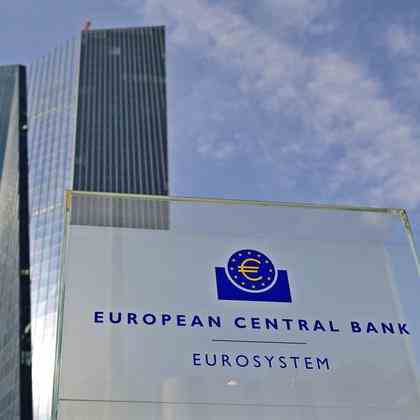Status: 07/21/2022 12:49 p.m
After the resignation of Prime Minister Draghi, yields on Italian government bonds are rising. As a result, it will become more expensive for the country to repay its debts. This also poses problems for the ECB.
The good mood on the stock exchanges due to the resumption of Russian gas supplies via the Nord Stream 1 pipeline did not last long. This time the definitive resignation of the Italian Prime Minister Draghi is causing great nervousness on the markets. In Italy, the yield on ten-year government bonds rose to a good 3.6 percent, the highest level in three weeks. The increase in yields is a big problem for the Italian state because it increases debt service – and Italy is heavily indebted. However, it is also difficult for Italian banks, which traditionally hold large amounts of government bonds in their portfolios. The higher the interest rates, the lower the value of the bonds. The stock exchange in Milan falls under the impression of the current development by two percent.
Italy also a problem for ECB rate hike
The European Central Bank is also concerned about Italy. Today the ECB plans to raise interest rates again for the first time in eleven years. However, a hike now could put additional pressure on the Italian economy. This is one of the reasons why the ECB is discussing a new crisis instrument to help highly indebted members. The uncertainty about Italy is also reflected in the leading German index DAX. It is half a percent weaker at around 13,200 points.

New crisis instrument reaches legal limits
The ECB has announced a new crisis instrument with which it intends to prevent government bond yields from getting out of hand. With this program, called TPM (Transmission Protection Mechanism), the central bank wants to buy government bonds from individual euro countries – unlimited if necessary.
It is still unclear what conditions these purchases are subject to. Such an instrument already exists: it is called OMT (Outright Monetary Transaction) and was created in the wake of the euro crisis. However, the purchase of government bonds here is subject to very strict conditions, which force the countries concerned to implement far-reaching reforms. Therefore, the program was never used.
According to reports, these conditions should be much more relaxed in the program now being considered. There would then no longer be any compulsion, for example, for an over-indebted country to put its finances in order. This lowers the hurdle to take advantage of the TPM program; the central bank could therefore act faster. The instrument raises legal questions, because the ECB is actually prohibited from openly financing states.
The increase in government bond yields was a key trigger for the euro crisis from 2010 to 2012. At that time, speculation was being made against highly indebted euro countries, which caused their yields to rise ever higher. This development, which essentially represented an existential threat to the European monetary union, was prevented by the famous appearance of the then ECB President Mario Draghi in London: “Everything that is necessary to preserve the euro will be done,” he said there (” Whatever it takes” speech). This was followed by several ECB bond purchase programs that ended speculation and normalized yield development.
ARD-Börse: Very nervous on the financial markets
Nicholas Buschschlueter, HR, 21.7.2022 12:06 p.m

